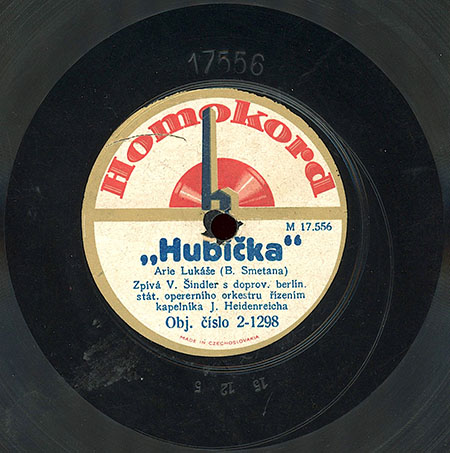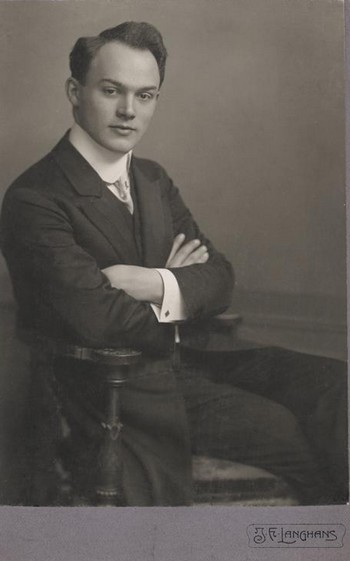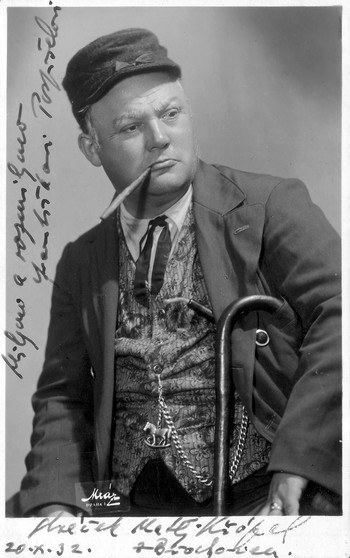Šindler studied theology and music in Olomouc, and eventually singing on the advice of Karel Kovařovic. He spent
the entire year of 1909 as a guest at the National Theater in Prague (debut: 6 January as Hoffmann) and was a great favorite
with the audience – but not with the management, who refused to give him a permanent contract, considering his training
insufficient. So he continued his vocal studies, and returned to the National Theater from September 1910 to January 1911; but
the result was the same, the audience loved him, the management didn't bite. Only after another series of guest performances as
Ladislav in Dvě vdovy, he finally got a contract in June 1911, for two years.
That contract wasn't renewed, and Šindler went to Zagreb (1914–17), and eventually to Brno, where he found his
artistic home and stayed until 1932. Janáček thought highly of him, and employed him in four world premieres of
his operas, all in Brno: Kudrjaš in Kaťa Kabanová (23 November 1921), Lumír in Šárka
(11 November 1925), Vítek in Věc Makropulos (18 December 1926) and Šapkin in Z mrtvého domu (12 April
1930). While those four were comprimario parts, and while he had a few other comprimario parts in his repertory, as well, he
sang mostly lead roles: Don Ottavio, Wilhelm Meister, Max, Don José, Massenet's des Grieux, Gounod's Faust, Alfredo,
Almaviva, Lenskij, Prince in Dvořák's Rusalka, Števa, Brouček...
Šindler was also a talented writer. For a series of essays in a music journal, he created the comic character of Uncle
Matěj Křópal from Břochovan (which translates into Podunk Hollow, roughly). Matěj
Křópal became so hugely popular that Šindler brought him to the radio (more than 60 Křópal
comedy programs from 1925, with Šindler himself as the main character) and to the stage, where again he played
Křópal himself all over Czechoslovakia in a host of revues from 1926 to 1952. Eventually,
Šindler/Křópal even participated in five Czech movies. Other than that, Šindler
worked as a voice teacher until his death.
Šindler as Uncle Matěj Křópal
Also two of his brothers were operatic tenors: Antonín (1886–1969), who sang in the Czech provinces and in
Yugoslavia from 1919 to 1932, and Václav (1893–1952), who was a comprimario in Brno and Valentin's partner in the
Matěj Křópal programs.
Reference 1 and picture source, reference 2: Kutsch & Riemens,
reference 3


